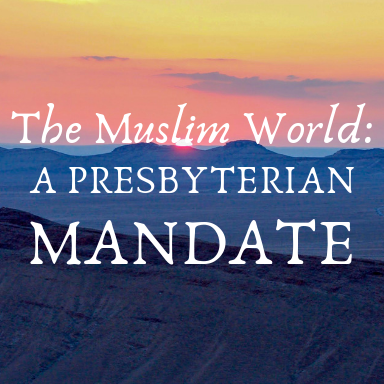A Great Barrier to Evangelism | June 2019
Dear friends,
During my first trip to India I taught a course on the five solas of the Reformation. The national leaders who organized the event had reserved the upper room of a Catholic charity for the day and filled it with plastic lawn chairs. As I arrived early, I entered the hot and humid room to find several adults and their children sleeping on the concrete floor. After backing out of the room quietly I notified our national partners, who simply smiled. “They were so concerned that they might miss the teaching, they took a train here last night.” It is a moment I will never forget, and it is one that I speak about often as I try to help others understand the enormous need for theological education around the globe.
At the very inception of the modern missionary enterprise, theological education and ministerial training have always been foundational values of global evangelization. From the historic 1910 World Missionary Conference in Scotland to the Third Lausanne Congress held a century later in Cape Town, South Africa, missionaries and scholars alike have long agreed that “The promotion of theological education is a life and death issue for Christianity.”*
Recognizing such a need, Presbyterians in particular have often taken a lead role in the sphere of Christian education in global missions. From Ralph Winter’s groundbreaking and innovative Theological Education by Extension (TEE) program to more modern enterprises such as Richard Pratt’s Third Millennium Ministries, a Reformed perspective on global missions has often ensured a strong commitment to the holistic practice of ministering to the whole person – body, spirit, and mind.
Sharing this same commitment, the EPC World Outreach charged Rev. Dr. Bruce Anderson with the task of forming The International Theological Education Network (ITEN) in 2010 with the goal of fulfilling the denomination’s commitment to full-cycle church planting – planting churches among the unreached who will plant churches among the unreached. Towards this end ITEN has had the privilege of watching the light of the knowledge of God to some of the most remote parts of the world including Pakistan, Siberia, Vietnam, and Myanmar.
In each of these places we continue to hear the same refrain that while technology and globalization are making more education available to more people than ever before, it is still insufficient for the growing need. Time and time again we hear from national leaders that the greatest barrier to evangelism is not radical or fundamentalist forms of religion, but false teachers who are making it increasingly hard for people to know the difference between the gospel of health and wealth and the gospel of Jesus Christ. This is why the EPC continues to affirm that any vision for church planting is futile without the simultaneous training of leaders. As Makie Stiles stated recently at The Gospel Coalition 2019 national conference, “If you don’t know what a church is, you’re going to have a very hard time planting one.” Such is the conviction of ITEN and the EPC World Outreach who are eager to continue to embody the historical vision of global missions first given to us by Christ himself: make disciples and teach them (Matt. 28:19).
*Detrich Werner, ed. Challenges and Opportunities in Theological Education in the 21st Century(Edinburgh 2010: International study group on theological education, World Study Report, 2009), 81
By Dr. Steve Woodworth, ITEN Associate Coordinator

















Recent Comments